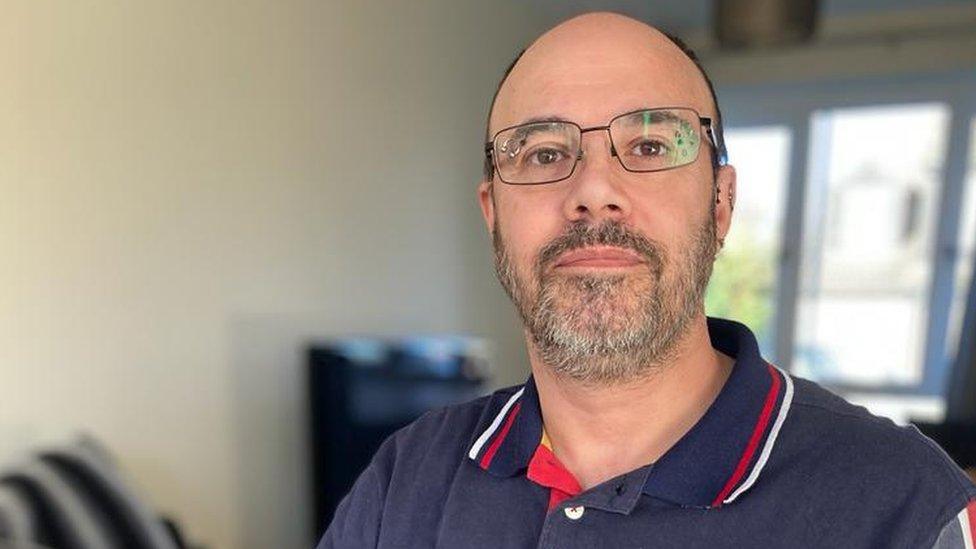Cost of Living: Women making tough choices in work and motherhood
- Published
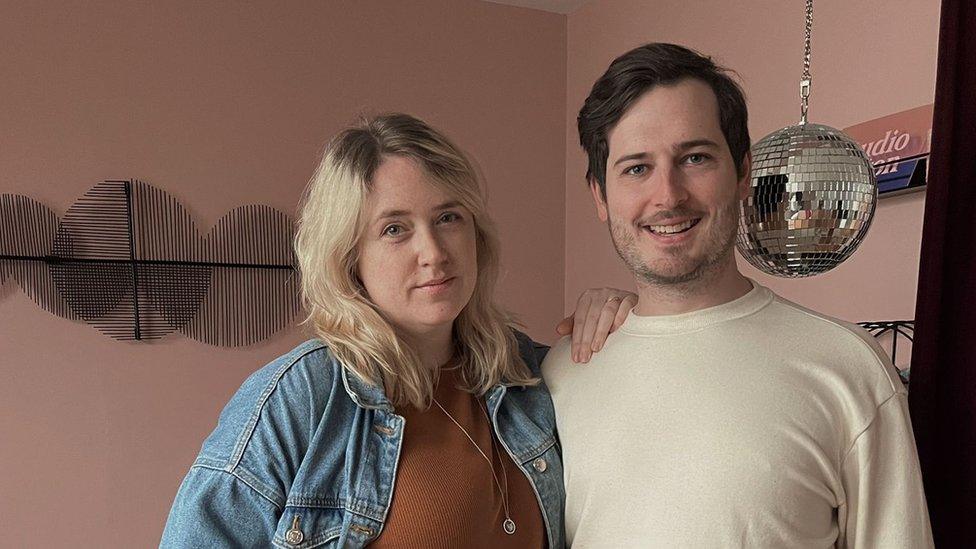
Aime Cox-Tennants IVF treatment was delayed by lockdown
Aime Cox-Tennant always saw herself having children, but in 2021, she found out she was infertile. After having one round of IVF treatment, she isn't sure if she can afford another in the midst of the financial crisis.
She is one of many women faced with tough decisions. Research by the Living Wage Foundation, external shows that women are disproportionally affected by the cost of living crisis, thanks to low incomes and caring responsibilities.
"I am 35 and I only have a number of biological years when having kids is an option. I have a ticking clock in the back of my head," said Ms Cox-Tennant, who lives in Bristol and owns a website design company called Studio Cotton.
Ms Cox-Tennant and her husband Alex Tennant have been trying for a baby since 2016. They have had one failed round of IVF, but it was the only round they were entitled to on the NHS.
"It's been too horrendous a year to try again and now with the cost of living crisis, it's just too risky to take the time away from the business," she said.
Studio Cotton was one of the many e-commerce websites that grew during lockdown, with Ms Cox-Tennant saying 2020 was their busiest year.
"We picked up lots of arts and crafts businesses, as well as jewellery clients. The arts and crafts businesses exploded."
Two years on, and she can see her clients' sales dropping.
"A lot of our businesses are suffering like crazy. The average order value is going down, the quantity of orders are going down, it's really difficult right now," she said.
Like many other independent business owners, Ms Cox-Tennant has made spending cutbacks and is even looking for a cheaper office.
But at home, she is faced with an even tougher decision - can her and her husband afford another round of IVF treatment?
"Every decision I make seems to be the wrong one. It seems at the moment that every decisions is weighted. There's too many bad outcomes. I feel like a passenger of my own life."

'We decided not to have kids'
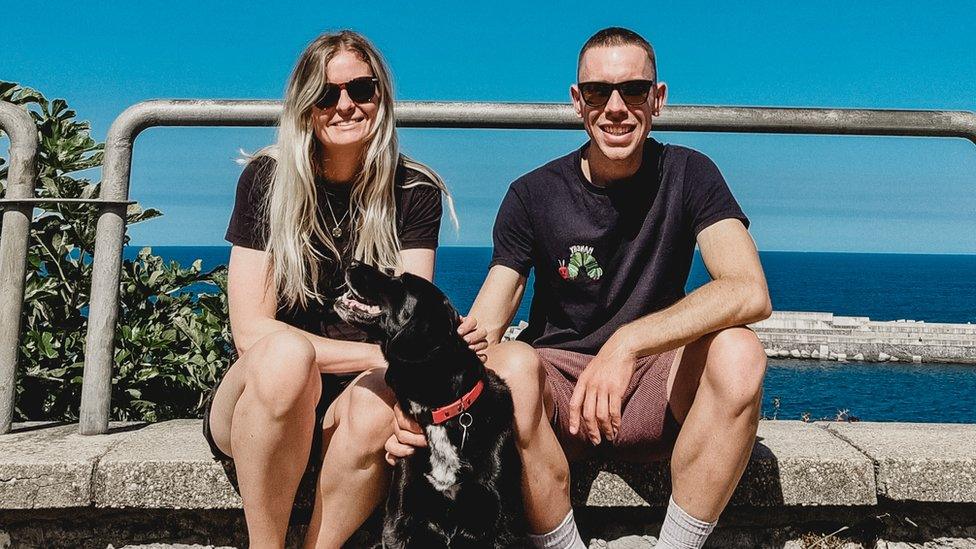
Georgia and Ashley De Lotz say that having a child would be a strain on their finances
On the other side of the spectrum, the current financial crisis has affirmed 34-year-old Georgia De Lotz's decision not to have children.
Ms De Lotz has been together with her husband Ashley De Lotz for 10 years, but neither want to be parents.
"It's all seriously reinforced our decision. Everything about having a child right now feels like it would be a strain on us," she said.
Miss De Lotz owns a photography studio in Shirehampton in Bristol, where she photographs products for e-commerce websites.
She mainly works with homeware and giftware, and similar to Ms Cotton, she said that business was booming during the pandemic.
However, as soon as the talk about energy and fuel price hikes began, Ms De Lotz noticed a difference in her clients.
"It's really sad. For many years, I had regulars and was often at capacity and couldn't take new clients," she said.
"Now my regulars aren't as regular, because they couldn't afford to book shoots like they used to."
The majority of Ms De Lotz's clients are homeware and giftware business who, she says, are now selling fewer products as customers rein in their spending.
She had planned to expand her business by renting a second studio and hiring more freelancers. But as 2022 has progressed, she doesn't know if it's the right time to take on the extra financial pressure.
Even without the pressure of having children, she says she doesn't feel as secure as she used to and worries about making enough money.

'Main worry is heating my home'
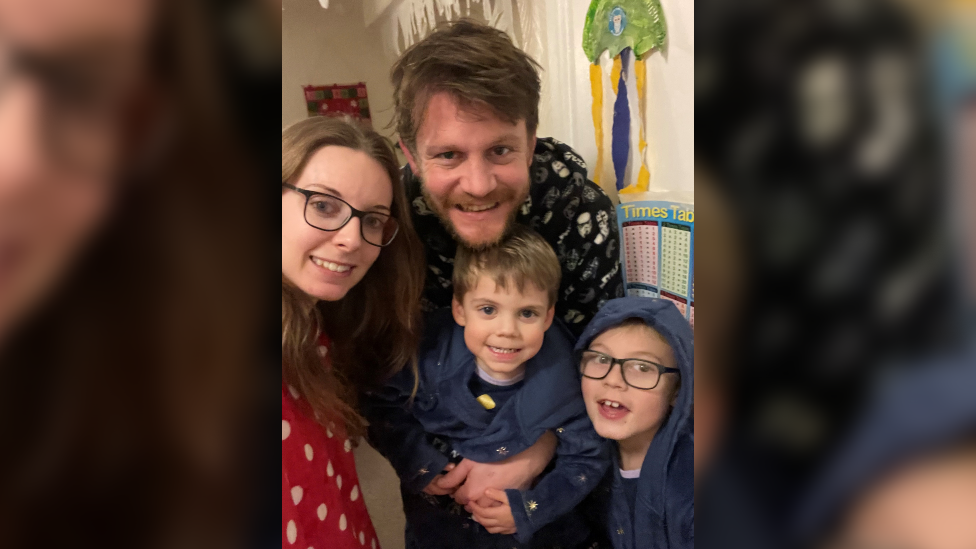
Louise Wilcox with her husband and two sons
With two businesses, Louisa Wilcox describes herself as the "breadwinner" of the family. She has also witnessed her client numbers decreasing.
Ms Wilcox became pregnant with her first child, who was diagnosed with Cerebral Palsy at 18 months, when she was 19 years old. At the time she was a single parent struggling to juggle a full-time job and motherhood.
She had her second child with Tony Wilcox, now her husband.
During the Covid-19 pandemic, she set herself up as a self-employed bookkeeper and recently expanded into a money-coaching business.
She says that being self-employed has given her much more freedom to be able to look after her two children.
"People advertise work/life flexibility, but it's only to a certain extent. And when you do have a child with disability that flexibility is not flexible in any way at all," she said.
As a financial coach, Ms Wilcox describes herself as being "money savvy". But her biggest concern is heating her home.
With a nine-year-old with cerebral palsy and a four-year-old with asthma, Ms Wilcox says her biggest priority is having a warm house to keep her kids from getting sick.
"With my eldest son with his disability, we really have to think how cold really affects his legs because his cerebral palsy affects mainly his lower limbs.
"So we have to be really mindful that we cannot let the house get too cold. We don't want him to then be in pain or not be able to move properly."

Follow BBC West on Facebook, external, Twitter, external and Instagram, external. Send your story ideas to: bristol@bbc.co.uk , external
- Published25 November 2022
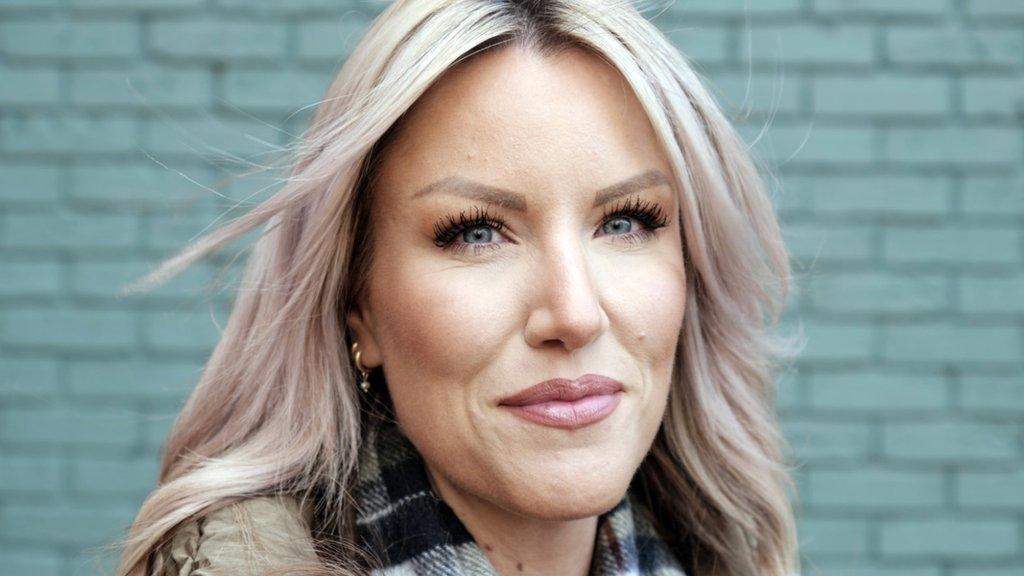
- Published25 November 2022
